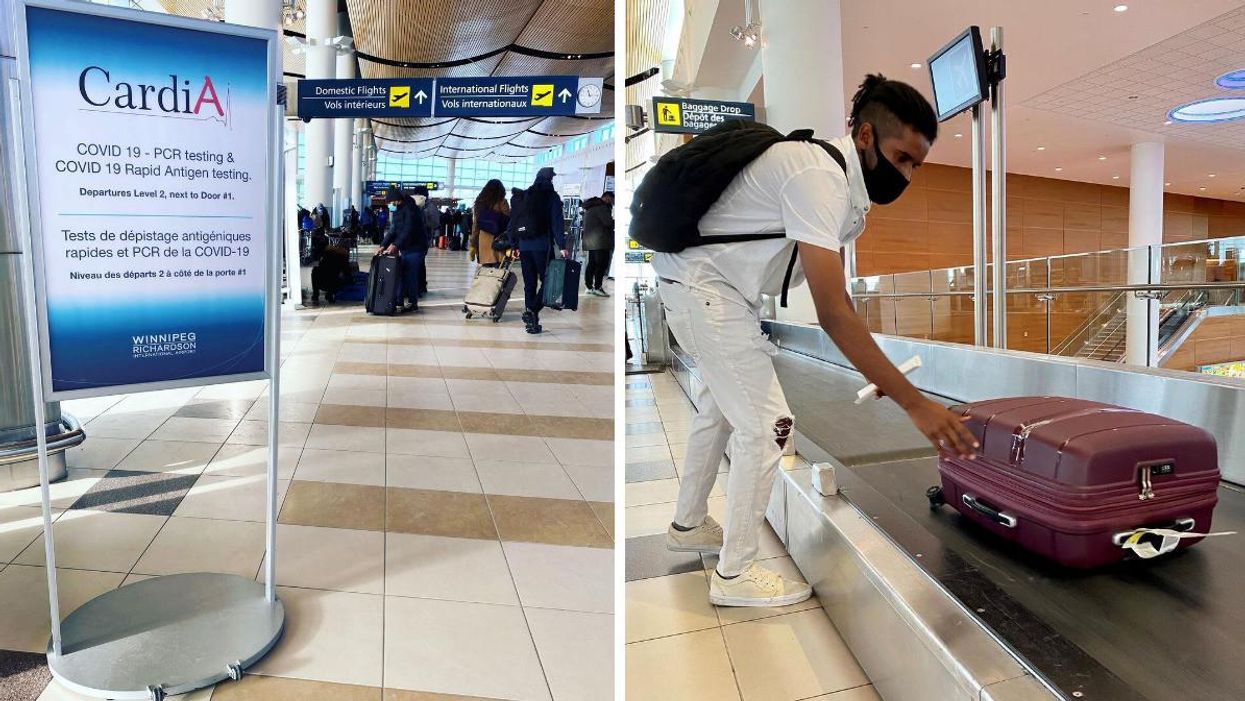Canada's Travel Restrictions Could Be Put Back Into Place As The COVID-19 Situation Changes
It depends on what happens in Canada and around the world.

A sign about COVID-19 testing at an airport. Right: a person loads luggage on a conveyor.
With new changes to Canada's travel restrictions set to come into effect, people are being reminded that the measures can be put back into place.
After it was announced on March 17 that the pre-entry COVID-19 test requirement is dropping for fully vaccinated travellers as of April 1, 2022, federal government officials were asked if now is the right time to ease the rules and if restrictions could be reintroduced.
Health Minister Jean-Yves Duclos said it's possible for travel measures to be put back into place because the government will keep following the COVID-19 situation and any adjustments to the rules will be made as required based on what happens domestically and internationally.
He also gave an explanation as to why the rule requiring a COVID-19 test before entering Canada is being eased.
"Over the last few weeks, we've seen a significant decrease in the rate of positivity of travellers entering into Canada. That rate was almost 10% in January, which means that one out of 10 travellers in January entering into Canada was positive with COVID," Duclos said.
He noted that the rate was "significantly larger" than what was seen in early December and it has now fallen to about 1%.
However, the health minister also mentioned that the World Health Organization is reporting an increase in case counts globally and so the federal government will "keep monitoring the situation" internationally.
That includes using mandatory random testing of travellers on a regional and country-specific basis.
"If we see that we need to adjust measures, we will obviously do that," Duclos said.
He said the government is taking that approach to be "mindful" of how important it is to focus on the health and safety of everyone.
With the change to the pre-entry test rule that comes into effect on April 1, 2022, proof of a negative PCR or rapid antigen test won't be required for fully vaccinated travellers coming into the country by air or by land.
"Let us remember that all measures are subject to review," Duclos said. "We will continue to adjust them as the epidemiological situation here in Canada and abroad evolves."
- Canada's Travel Rules Are Relaxing Next Month & Your Vacation ... ›
- Canada's COVID-19 Rules For Cruise Ships Were Updated & It's ... ›
- Federal Government Is 'Looking At A Phased Approach' To Remove Vaccine Mandates & Mask Rules - Narcity ›
- Canada's Travel Restrictions Are Changing Next Week & Here's What You Should Know - Narcity ›